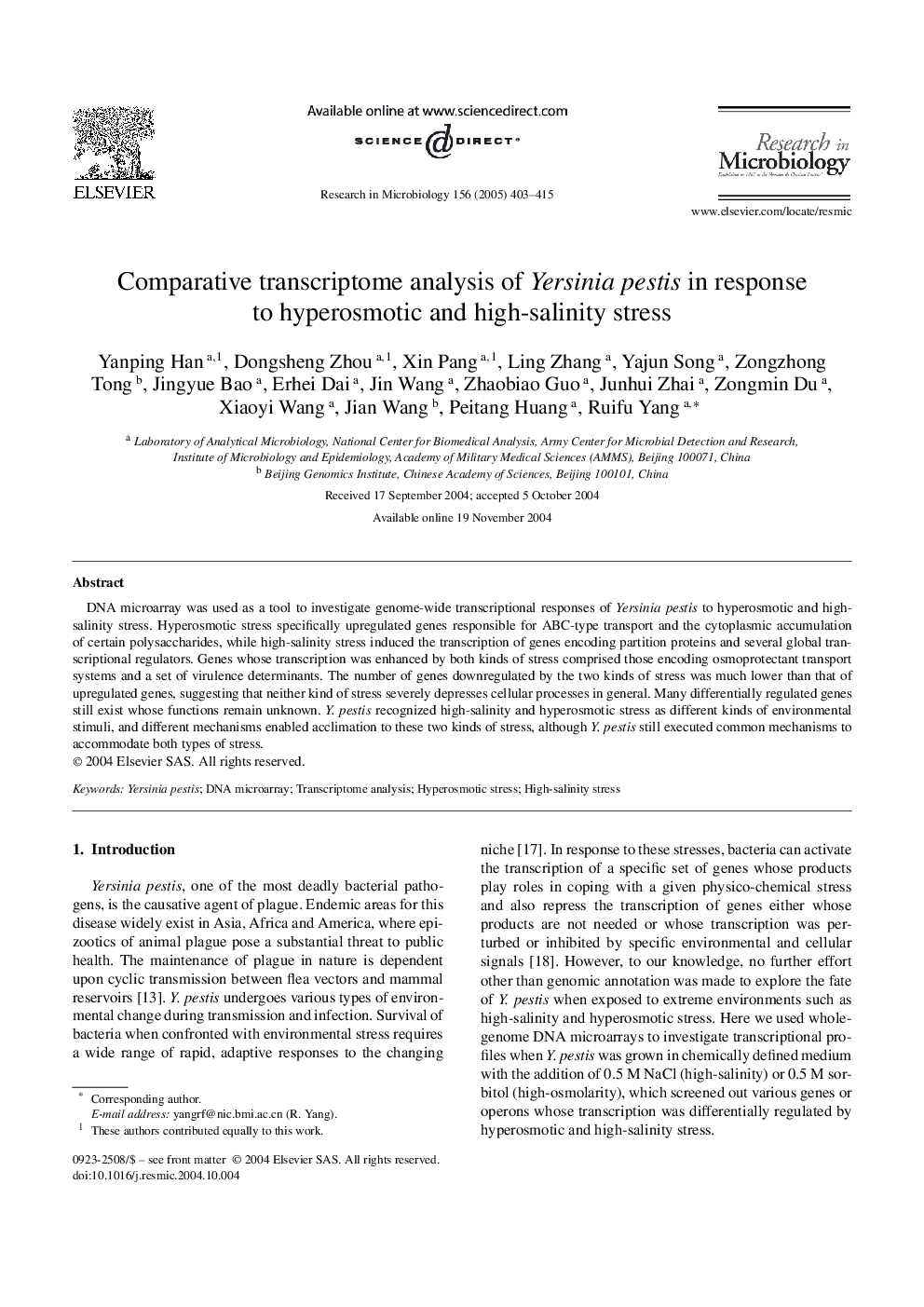| Article ID | Journal | Published Year | Pages | File Type |
|---|---|---|---|---|
| 9439868 | Research in Microbiology | 2005 | 13 Pages |
Abstract
DNA microarray was used as a tool to investigate genome-wide transcriptional responses of Yersinia pestis to hyperosmotic and high-salinity stress. Hyperosmotic stress specifically upregulated genes responsible for ABC-type transport and the cytoplasmic accumulation of certain polysaccharides, while high-salinity stress induced the transcription of genes encoding partition proteins and several global transcriptional regulators. Genes whose transcription was enhanced by both kinds of stress comprised those encoding osmoprotectant transport systems and a set of virulence determinants. The number of genes downregulated by the two kinds of stress was much lower than that of upregulated genes, suggesting that neither kind of stress severely depresses cellular processes in general. Many differentially regulated genes still exist whose functions remain unknown. Y. pestis recognized high-salinity and hyperosmotic stress as different kinds of environmental stimuli, and different mechanisms enabled acclimation to these two kinds of stress, although Y. pestis still executed common mechanisms to accommodate both types of stress.
Related Topics
Life Sciences
Immunology and Microbiology
Applied Microbiology and Biotechnology
Authors
Yanping Han, Dongsheng Zhou, Xin Pang, Ling Zhang, Yajun Song, Zongzhong Tong, Jingyue Bao, Erhei Dai, Jin Wang, Zhaobiao Guo, Junhui Zhai, Zongmin Du, Xiaoyi Wang, Jian Wang, Peitang Huang, Ruifu Yang,
